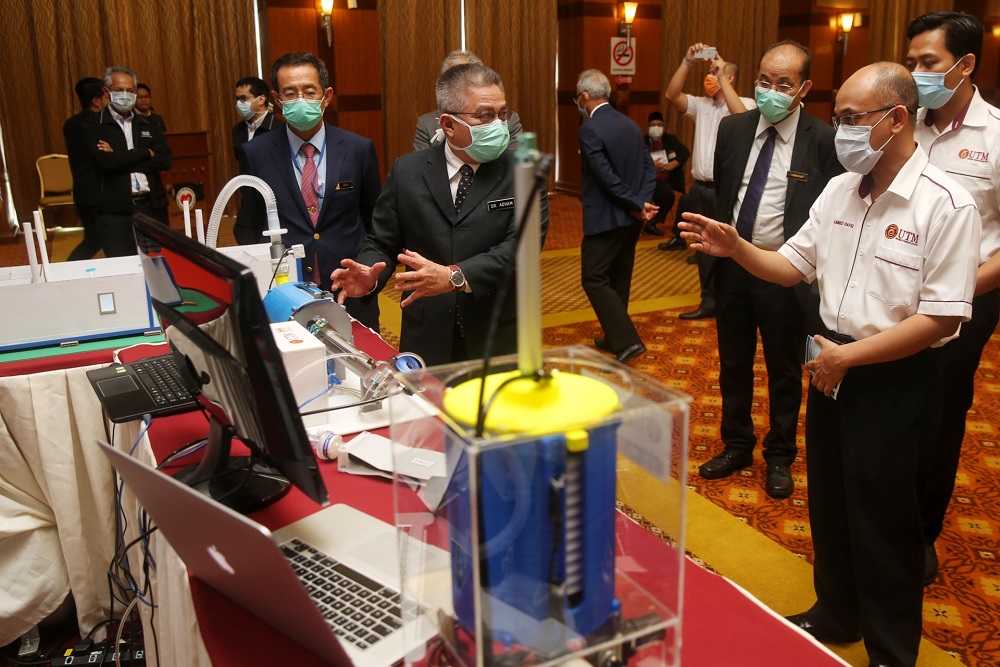PUTRAJAYA, April 13 — The Health Ministry and Universiti Teknologi Malaysia (UTM) are collaborating on a new prototype ventilator device, which will serve as a backup measure in the ongoing fight against the Covid-19 pandemic.
Under the aegis of the ministry’s Collaboration Engineering Services Division, the device known as a Medical Ventilator Apparatus will serve as an alternative solution for the ministry should the demand for ventilators in intensive care units nationwide exceed the available supply.
UTM’s Engineering Faculty dean Prof. Mohammed Rafiq Abdul Kadir said the device is based on an open-source design originally drafted by a team of engineers in Poland.
“We utilised the design and made several adjustments to it. Theoretically it is ready for use, but we have sent it for approval to the ministry’s Medical Device Authority,” he said during the media briefing at the ministry complex.

Rafiq said the prototype will also utilise 3D printing to produce several of the parts needed for it to function, thereby making it more accessible.
“The prototype will also be tested thoroughly to ensure its functionality and efficiency is viable.
“It should be noted that the ventilator prototype is for emergency usage, in contrast to the standard ventilation units in hospitals which are more permanent,” he said.
The ministry and UTM also collaborated with Radicare (M) Sdn Bhd on developing a prototype splitter kit, aimed at providing breathing assistance for Covid-19 patients in ICUs.
Similar to the ventilator prototype, the splitter kit will also use 3D printing and is based on a concept originally designed by a team of medical specialists from the Pulmonary and Critical Care Medicine University in Vermont, United States.
“The splitter kit will enable a standard ventilator unit to be shared by two patients when receiving breathing assistance, in the event the Covid-19 infection in Malaysia reaches a critical level,” Rafiq said.

Another collaboration between the ministry’s division and UEM Edgenta Berhad is the Field Hybrid Intensive Care Unit (FHyICU) field structure aimed at providing extra space to treat patients if hospital can no longer accommodate the number of Covid-19 patients.
Edgenta Mediserve Sdn Bhd’s engineering chief Mazlan Yusoff said the FHyICU was designed with input from the Armed Forces.
“The Armed Forces shared their experiences operating military hospitals while assisting Rohingya refugees in Cox’s Bazaar, Bangladesh, and they are largely supportive of the idea.
“The FHyICU is designed to meet the objectives of being customisable according to number of beds or patients needed for treatment, suitable and adequate placement for Covid-19 infected patients, and in compliance with ICU/ISO and engineering standards, among others,” he said.
Mazlan added the FHyICU’s features include compliance with hygiene standards, designed to meet negative pressure, temperature, relative humidity, and, air change, as well as being flexible enough to assemble, disassemble, and reassemble within a short space of time.
“The current design accommodates six patients but can also fit up to 10 beds. The structure consists of the donning room, ante room, linen store, nurse station, patient area, toilet, doffing room, shower, consumables room, and dirty room,” he said.
The media briefing was also officiated by Health Minister Datuk Seri Dr Adham Baba.




















